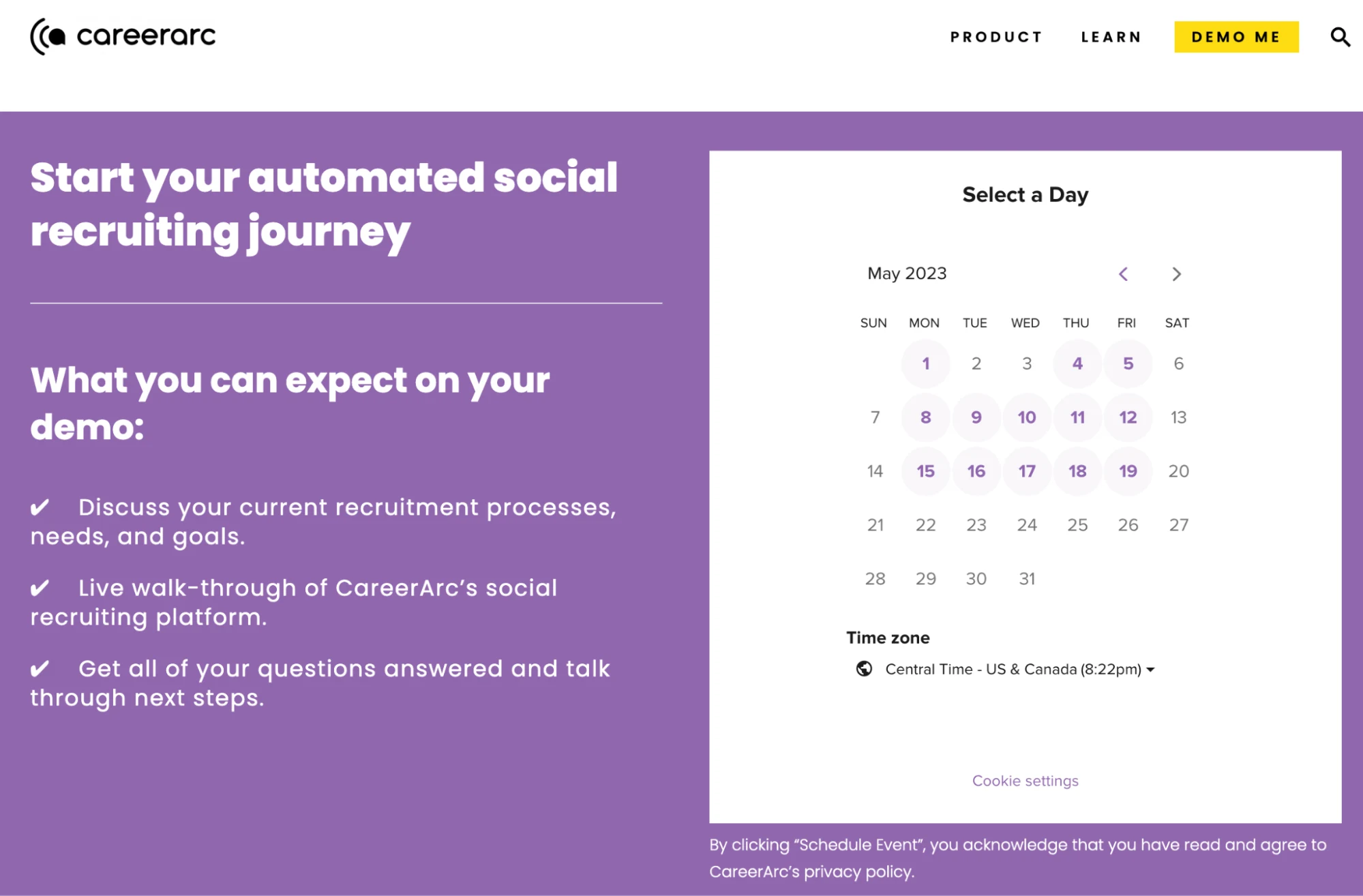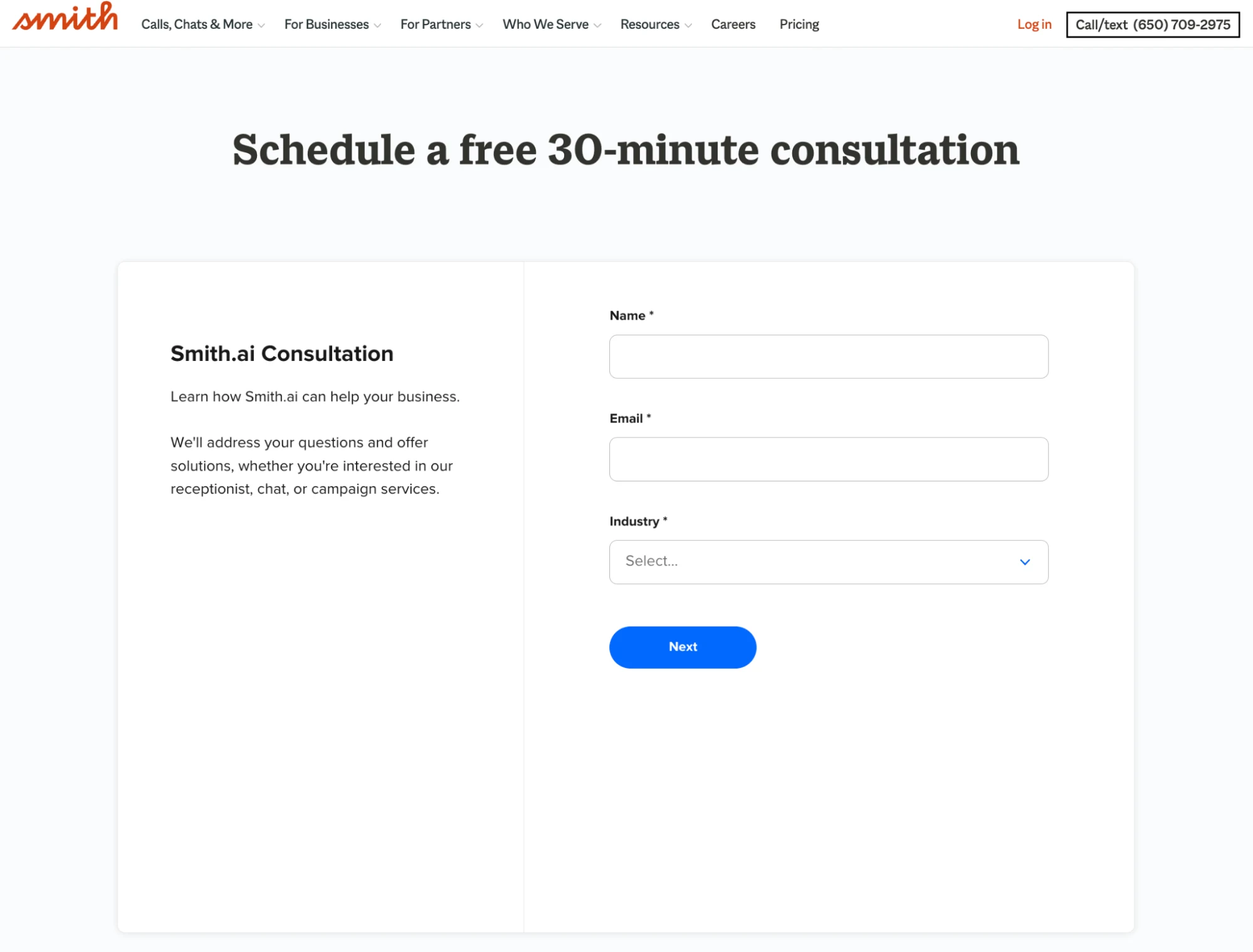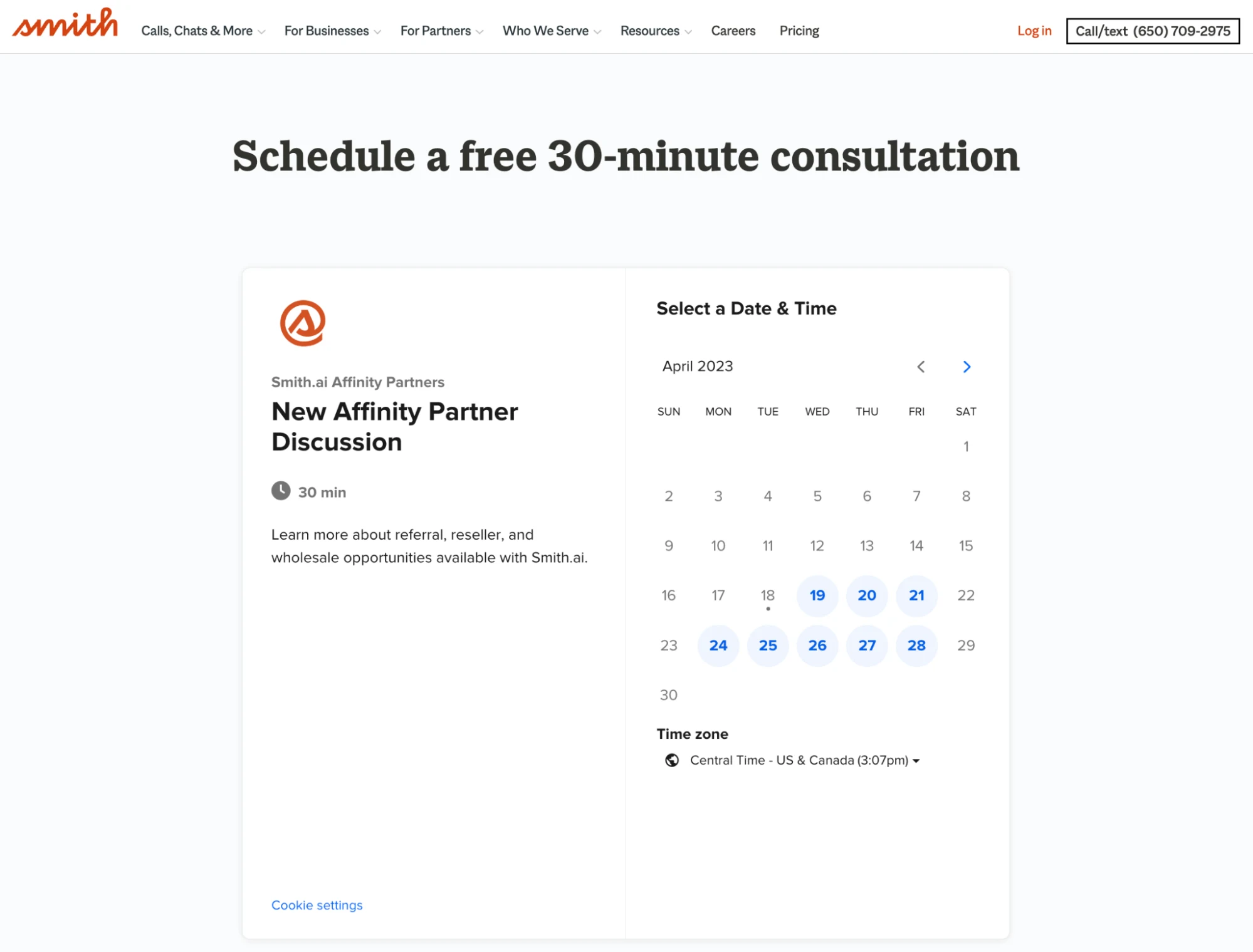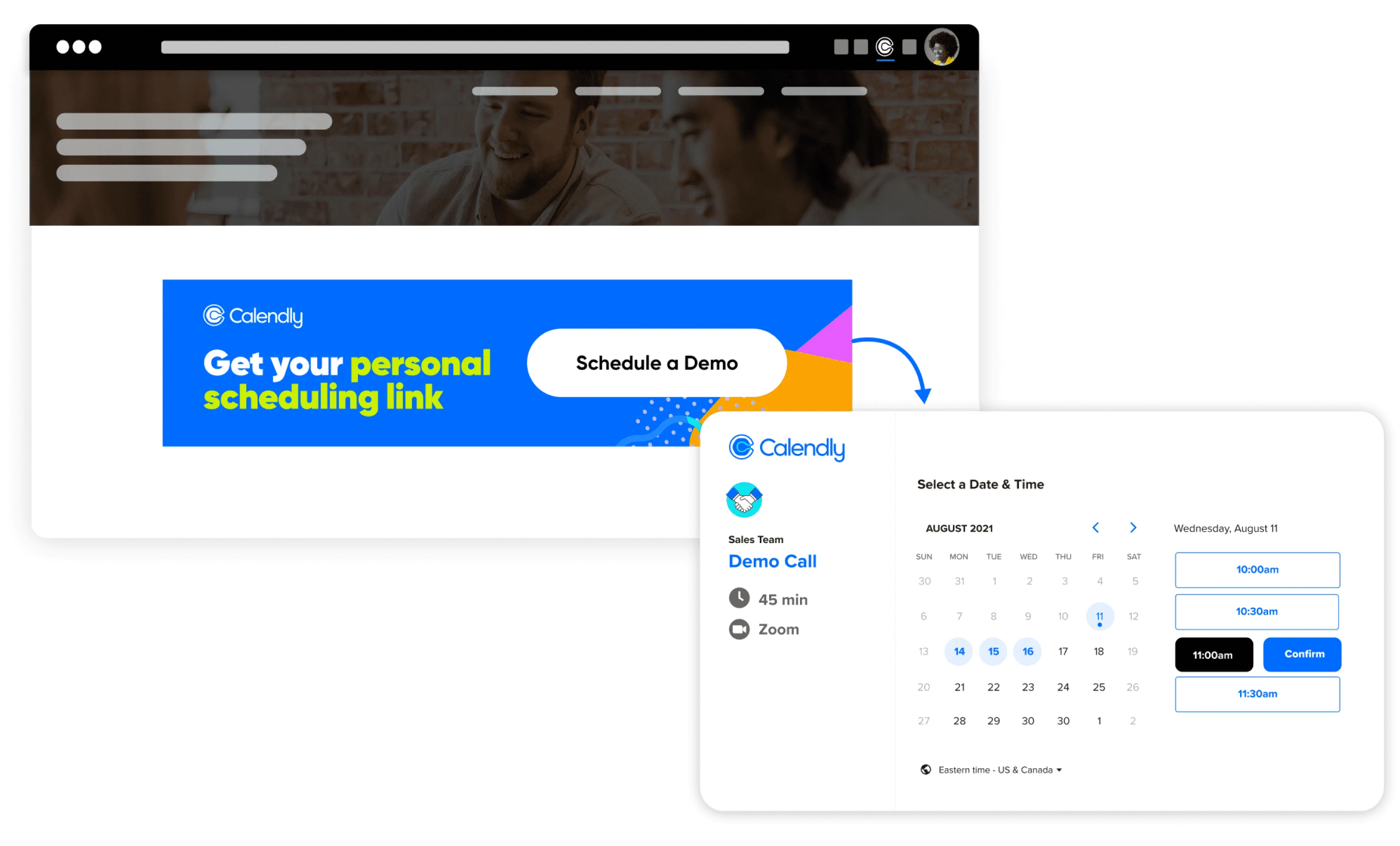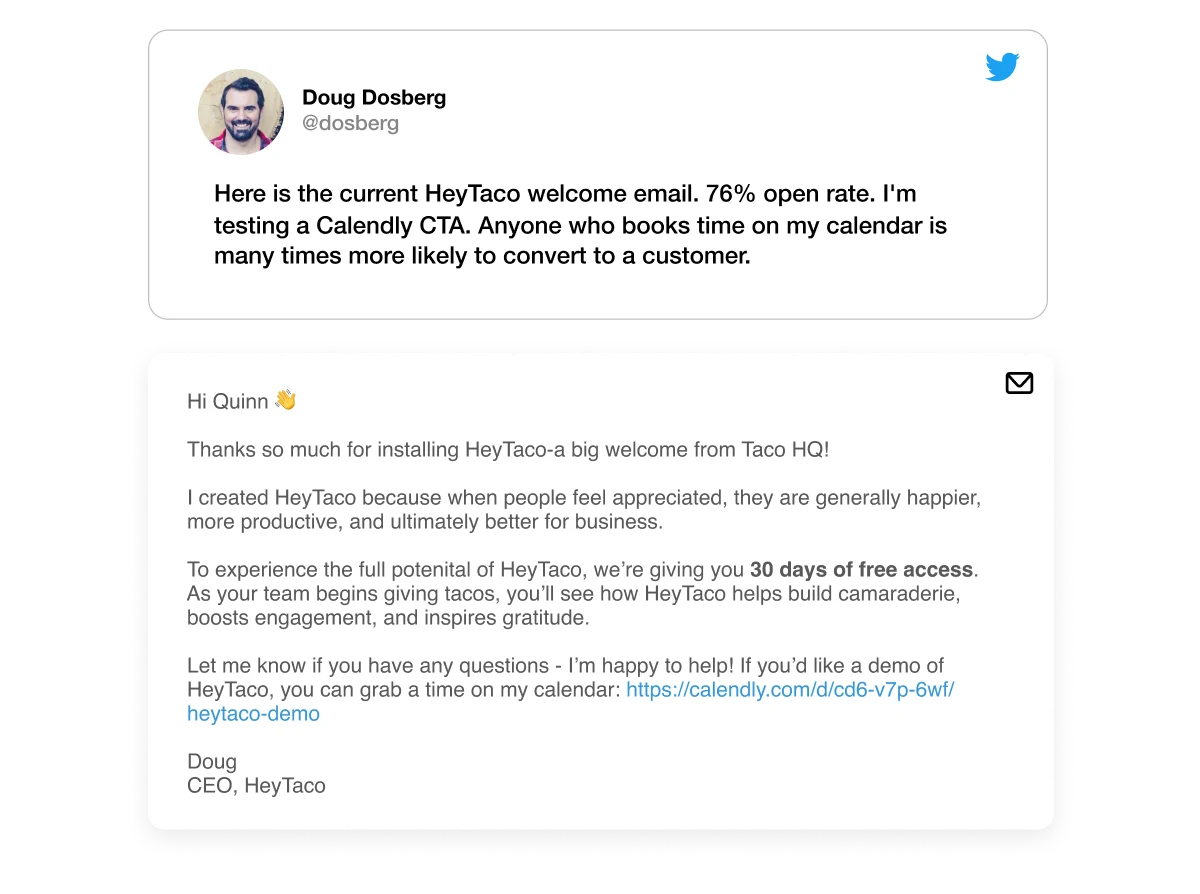Sales
Sales needs marketing-qualified leads. Marketing delivers more of them with Calendly.
Learn how marketing teams use Calendly automation to deliver more MQLs directly to sales teams.
Thad Thompson
Mar 22, 2022
7 min read
Table of contents
Marketing teams face many challenges, but demand generation has to be one of the toughest and most stressful.
That’s not just one marketer’s opinion. According to HubSpot’s 2021 State of Marketing report, 61% of marketers say lead gen is their biggest challenge. What’s more, over half of them spend at least 50% of their budget on it — a huge chunk of resources when you consider the responsibilities marketing teams have.
It’s about MQLs, not just leads
In the B2B world, nearly 75% of leads aren’t ready to talk to a sales rep.
After connecting with potential customers, the real priority is engaging them further to see if they rise to the level of marketing-qualified leads (MQLs). You must find actionable leads who are on the buyer’s journey and, more importantly, actively interested in your solution. Then comes the back-and-forth communications to schedule a demo.
When there’s too much friction in the process, even the highest-scoring leads can drop out of the sales funnel and never make it to your sales team.
Qualify, route, and book sales meetings instantly
Automate demand generation and gain more qualified leads
Wouldn’t it be better to deliver MQLs directly to your sales team automatically? You can with Calendly.
Calendly’s scheduling automation helps you streamline the lead qualification process. Calendly can be a demand generation tool that delivers actual meetings with high-intent prospects — self-selected MQLs — directly to your sales team. Calendly Routing lets you instantly qualify and book leads from your website forms. Team scheduling features automate your lead distribution process. You can even use Calendly to align and collaborate with the many external partners who keep modern marketing teams functioning.
As one of our own demand gen leaders puts it:
“Why worry about sending a response within five minutes of a form fill when you can book a meeting with sales within five seconds of a form fill?”
Garrett Scott
Head of Demand Generation at Calendly
5 stress-free ways to deliver MQLs
Let’s look at the ways Calendly lets marketing teams bridge the gap between interested MQLs and the sales teams who convert them.
1. Embed Calendly in your website
The MQL process usually starts in one of two places: replies to a large-scale outreach campaign, or form fills on your website.
To manually qualify leads, match them with AEs, and then finally set up a meeting takes way too long. Embedding a scheduling tool in your website gives prospects a direct connection to your sales team at the height of interest — no additional emails needed.
For example, you can embed Calendly on your website, giving leads a “schedule a demo” option instead of a “contact sales” form. This approach also improves your team’s speed-to-lead metrics.
Hot tip
Use sales enrichment tools to create a targeted experience for prospects. Platforms like Clearbit review IP addresses and present a customized site (including your scheduling page) to visitors from high-value target companies.
2. Qualify leads in real time
Direct connections to sales are convenient for prospects, but your team still spends valuable time filtering out leads that aren’t the right fit.
Let an automated form do the work for you.
With Calendly Routing, show scheduling pages only to leads who meet your qualifications, like company size or industry. You can qualify leads through marketing forms in HubSpot, Marketo, Pardot, or build new forms in Calendly.
Once they fill out the form, automatically route visitors to the right booking page based on their form responses, so they can schedule immediately. (For leads who don’t book, your existing routing rules and engines kick in as usual.)
By integrating Calendly with Salesforce, known leads or existing customers are instantly matched to their account owner’s booking page, so no one has to spend valuable time manually reassigning leads.
“We’re seeing an incredible 26% increase in demos booked through the form. The experience is clearly resonating with customers and it’s driving better end results for our sales and marketing teams.”
Bryce Kropf
Sales Enablement Manager at Smith.ai
3. Make Calendly your email CTA
Before the email marketers get mad, I’m not suggesting you do away with outreach campaigns. Far from it! Calendly is a great way to boost MQLs in any email marketing plan.
Instead of asking prospects to “learn more” or “contact us,” streamline the process by asking them to “meet now.” Then, direct the call-to-action (CTA) to your scheduling page or an Event Type. As with the website embed, your most interested prospects will contact you. Why not skip the internal scheduling work and put them in direct contact with your sales team?
Hot Tip
Try using different Event Types for each campaign. Specific event types align the meeting with a particular campaign’s goal and help you track MQL sources more closely.
What’s great about the Calendly-as-CTA approach is that it works with any number of email campaign types and stages. Offering meeting opportunities in nurture, re-engagement, and even welcome emails helps you connect with prospects at any point in the buyer’s journey and elevate them to an MQL.
What's more, you can use Calendly's integrations with Google Analytics and Meta Pixel (formerly Facebook Pixel) to track the progress of your email campaigns.
4. Automate lead distribution
To keep focus on the most qualified leads, many sales teams have prospects meet with a sales development representative (SDR) first. You can use Calendly on the back end to enhance your lead qualification process with automated, real-time lead distribution.
Calendly’s Round Robin scheduling feature gives you multiple options for routing the lead to an SDR. You can connect the lead with the next available SDR to improve response times. Or, you can distribute meeting requests equally around the team to balance the members’ workloads. The SDR can then meet the prospect, compare them against your organization’s MQL criteria, and either qualify the lead for sales or put them into a nurture cycle for future follow-up.
Let’s look at an example of a purchasing manager choosing a new AI platform. They’ve conducted research and want to get more information from sales reps. The purchasing manager visits the websites of their final options and fills out their contact forms.
Fortunately, Acme AI uses Calendly’s team scheduling features, including Round Robin lead distribution.
While Acme AI’s competitors are busy reviewing and assigning leads, the purchasing manager is immediately taken to a scheduling page with available times to talk with the sales team. The manager chooses the most convenient time slot, and Calendly automatically books a meeting with the next available sales rep.
Later that same day, the purchasing manager and SDR are discussing how the solution can meet the manager’s needs. Acme AI has moved a new prospect to a sales-qualified lead in just a few hours.
Whitepaper: Scheduling automation for sales, marketing, and customer success teams
5. Align your marketing partners
If lead generation is a major challenge for marketers, then coordinating everyone inside and outside your company involved in the lead generation process is not far behind.
Modern marketing teams aren’t self-contained units anymore. 60% of marketers have reported an increase in partnering with outside teams. They must collaborate with external partners to successfully deliver the MQLs their sales team needs.
With so many moving pieces, scheduling becomes a huge headache. It’s not just because so many people are spread across different teams and time zones (and even countries). These agencies are outside of your team’s work cadence. They aren’t familiar with your workflows and the commonly known optimal times to meet which aren’t on any calendar.
Calendly’s collective scheduling features helps you keep everyone connected and working toward your goals. Collective Event Types let you define when all of your team members can meet. It’s a great way to schedule recurring status meetings, check-ins, and other updates with your external partners that require participation from your entire team.
The best part? You never have to worry about a team member missing out, because the collective event limits any bookings to those available hours. Calendly ensures you always find the shared availability to connect and collaborate.
An essential tool for successful marketing teams
It’s increasingly complicated to forge connections between the leads marketing teams qualify and sales teams close. Schedules are full, pipeline goals are growing, and any amount of friction can stop the sales funnel cold.
Shared availability is critical for success in marketing and demand generation. Calendly helps you find it more easily so you can deliver the MQLs and revenue opportunities that make your organization successful.
Get started with Calendly
Ready to make scheduling easier than ever?
Related Articles
Don't leave your prospects, customers, and candidates waiting
Calendly eliminates the scheduling back and forth and helps you hit goals faster. Get started in seconds.
Calendly eliminates the scheduling back and forth and helps you hit goals faster. Get started in seconds.



